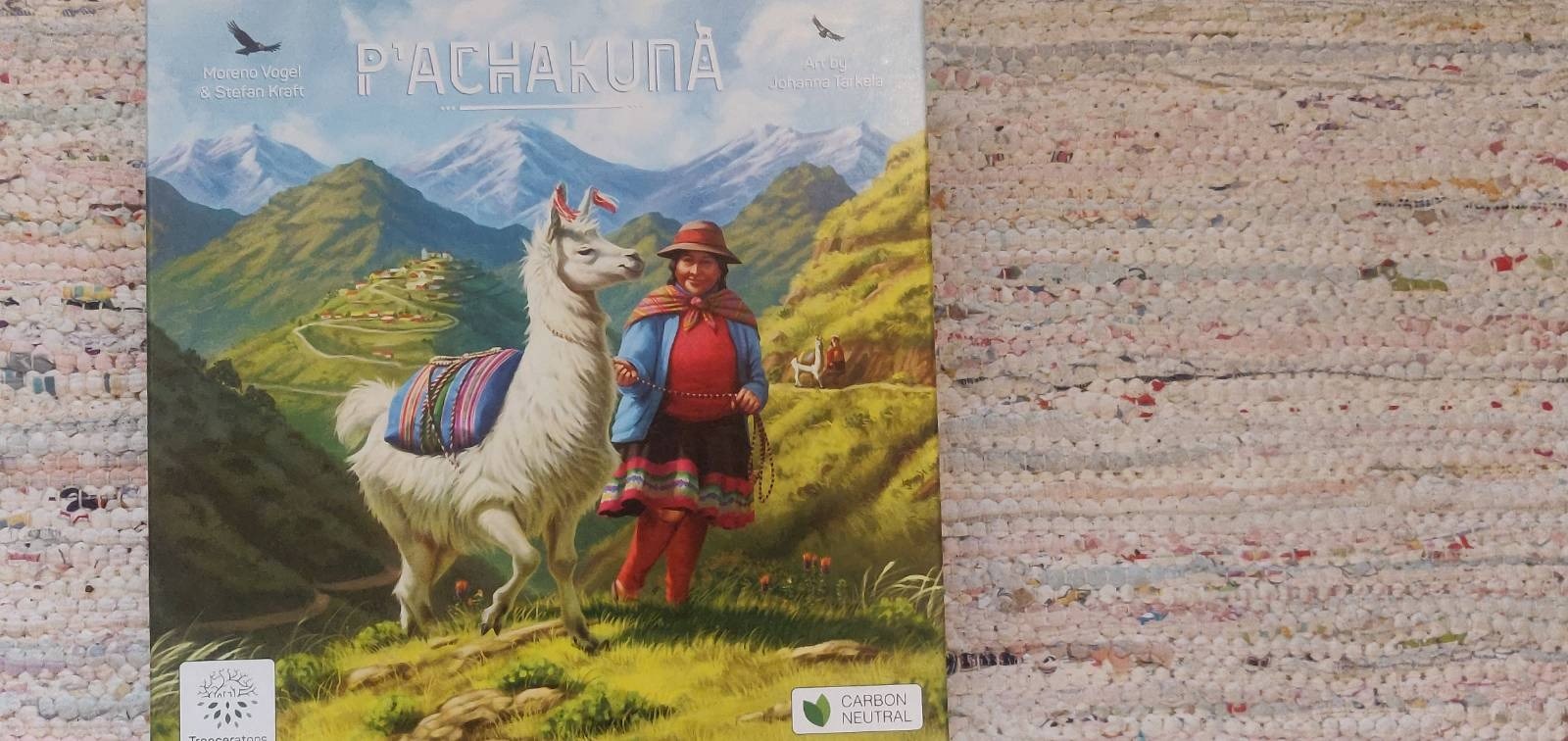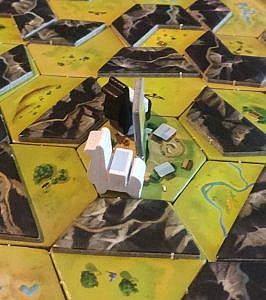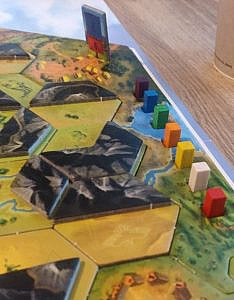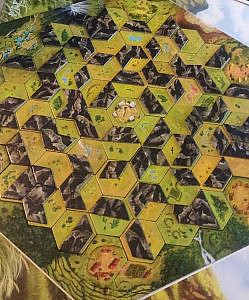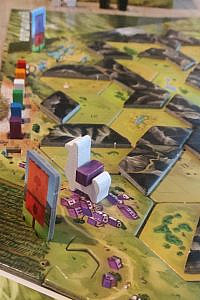P’achakuna is a two-person playable game from Happy Meeple Games, originally funded through Kickstarter. In the game you are a trader in the Andes going back and worth villages with your llama. You trade different coloured wool between villages for their needs and yours. In the game you try to get all the different shades of wool, so you can get a colourful traditional cloth made. When you have gathered all the colours, you win.
The gameboard is a hexagon shaped frame where you place different hexagon tiles on random order (except for the one village centred on the map) and then pair the hexagon tiles with different geometric shaped black tiles, which emulate the mountains. During your turn you move these black tiles 360 degrees on the hexagon tiles and try to make way to different villages on the map. When you get to a village, you trade wools to collect all the different colours. The villages have a randomized supply demand that determines how many colourful blocks you get.
What makes the game interesting is that it gives a choice for the two players; do you travel across the mountains (as the black llama) or the terrain (as the white llama)? This means both players will have their individual routes on the same map. The players get to move a black tile of mountain, either making a mountain way for the black llama or opening the way for the white llama on the grass. The players can only travel either on mountain trail or by terrain, so you can also hinder your opponent’s way to other villages. Each one gets only one tile turn per turn, but if you have more supplies bars than you need, you can change them to either extra turns of the tiles or for more llamas. One player can have three llamas total in play at once.
My partner, playing the black llama, did feel it was a bit harder to play, with just the mountain ways in their disposal, but it could be just need of practice by playing a couple of more times. I found it easy to move around as the white llama. We were also nice to each other this time around and focused more on making paths for ourselves instead of blocking the others way, but we shall return with vengeance.
What I enjoyed about the game was not only the different mechanics, but also the cute and colourful design. The game artist Johanna Tarkela did an amazing job in the illustrations of the board and different pieces. I also enjoyed how the game pieces were either cardboard or wooden blocks, since a lot of game design is based on plastic. What was also delightful was the knitted piece bag, a great way of adding design value!
The only note I would give for the game is that the pieces felt rather small to handle, even though I have tiny hands and fingers myself. I would have liked the pieces to be a bit bigger so I wouldn’t fear losing them into my dog’s mouth instead, or by dropping them into the dimension hole known as the floor. The cute idea of the llama carrying the wooden block on its back also sounds great, but with slippery wooden figures the block tends to drop on the middle of the map while moving the llama. We will probably fix this little inconvenience with a little piece of blue tack or double-sided tape.
All in all, I recommend P’achakuna highly! I had a lot of fun while playing, the play time is marked 30-60 minutes and it checked out, and due to the board being different every game it has a lot of replay value. I also love the fact you can easily play something with just one friend over, even though I think it’s a double-edged sword as well. If there was an extra part for sale where you get to have the board set for extra people, I would buy it, just to share the fun.
Distributor: Happy Meeple Games
Design: Treecher
Art: Johanna Tarkela
Age: 8+
Players: 2
Playtime: 30-60 min
Pictures taken by author during gameplay.
